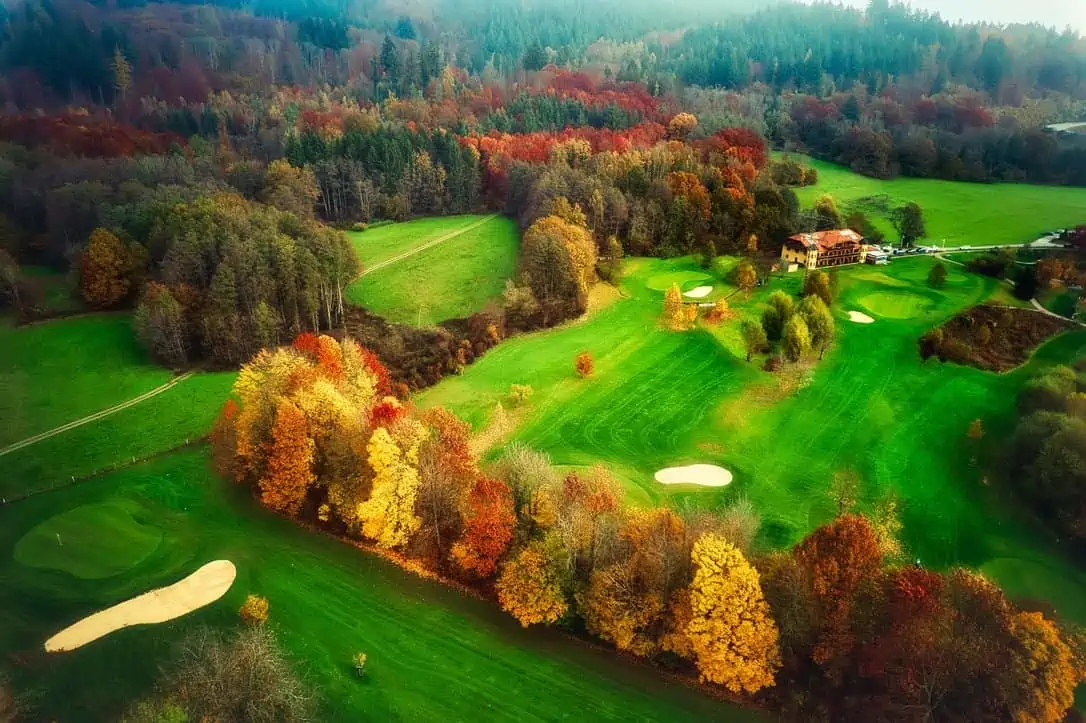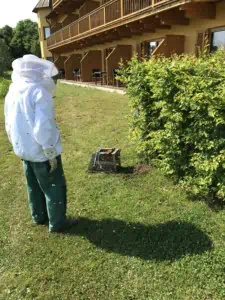GP Bad Säckingen: Small course, big commitment
Commitment has nothing to do with size. This is the main finding when you visit the Bad Säckingen golf park , which is located just across the Swiss border in Baden-Württemberg and also takes part in the Habitat Golf Course project. The compact 9-hole course, which borders directly on a landscape protection area and is itself partly in the water protection zone, is a classic case for a quick round or a destination for beginners. “Many golfers get to know the sport here, then often switch to larger clubs and then come back,” explains Nils Bosley, the managing director .
Inclusion program in the hotel and greenkeeping
With an area of just ten hectares, one might think that the field of activity for measures to increase biodiversity and a sustainable approach is rather too small. The Golfpark Bad Säckingen proves the opposite. “We don’t use any pesticides at all, they’re not allowed here anyway, so we’re doing it more mechanically,” explains the greenkeeper of the golf park, who still manages to present the fairways well with his small team.
A look at the perfectly aligned bunker on hole 3 shows that someone has put a lot of effort into it: it is one of the employees with a handicap, who is employed on the golf course and the neighbouring hotel. Inclusion is the order of the day here. Bosley and his greenkeeping team wanted to employ the mentally handicapped greenkeeper in areas that didn’t overwhelm her and that were fun at the same time: “We could have bought a robot to collect balls, but that seems to be the more sustainable solution at the moment ‘ concludes Bosley. The integration of disabled people in gastronomy, golf courses and hotel operations is a win-win situation for everyone involved.
Yellow-bellied toads and bees in just ten hectares
The attention to detail also characterizes the handling of the golf course. The areas next to the fairways are not large. But beehives have found a place, as have yellow-bellied toads, which feel at home between two biotopes and a small watercourse. A medium-sized meadow with piles of dead wood has been laid out, and now people are thinking about planting new hedge areas. “And we now also attach importance to the fact that the shrubs are native varieties,” summarizes Bosley, who does not actually come from the golf industry, but has now taken a liking to it.
The careful handling of resources and products runs through the entire operation. “Before the Corona crisis, we were already completely plastic-free in the hotel. Unfortunately, we had to backtrack a bit because of the hygiene standards, but of course we want to go back there,” says the managing director. In the Sapia Hotel Rheinsberg, which is located directly on the golf course, you can also use the Too Good to go app so that you don’t have to throw away groceries. Instead, the products that have not been sold are available daily for a cheap price for users of the app.
No profit at any price
The sustainable approach of the company is well received by golfers and guests. It is based on the knowledge that the last euro of profit cannot always be squeezed out of the system in this way. But that, according to Bosley, is difficult anyway when dealing with a golf course.
Even on a small course, nature is good for unexpected surprises: the beaver, which also lives in the Golfpark Bad Säckingen, managed only last year to dam the water in such a way that a significant part of the entire golf course was under water and all electricity went out. He at least enjoys the Bad Säckingen golf course to the fullest.








